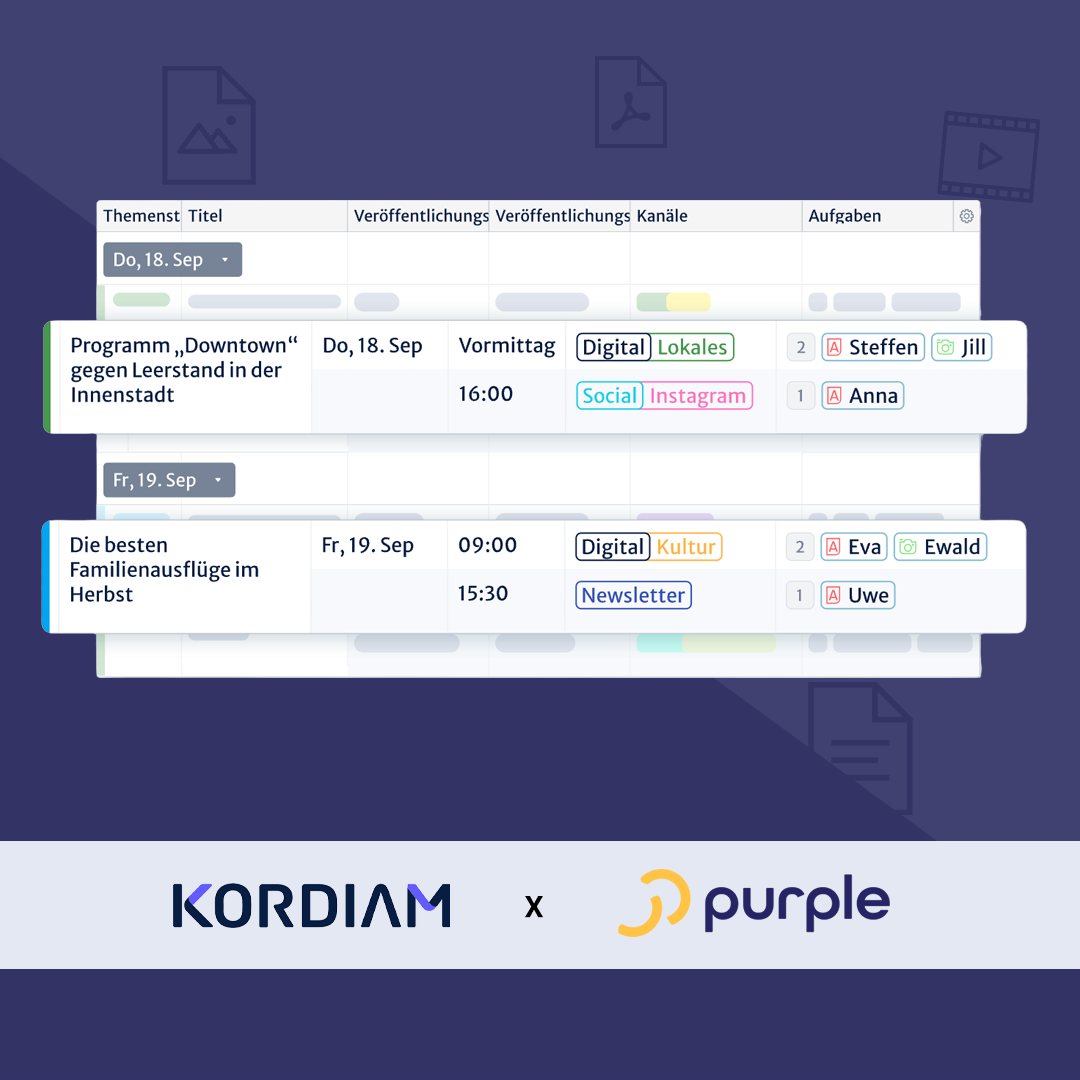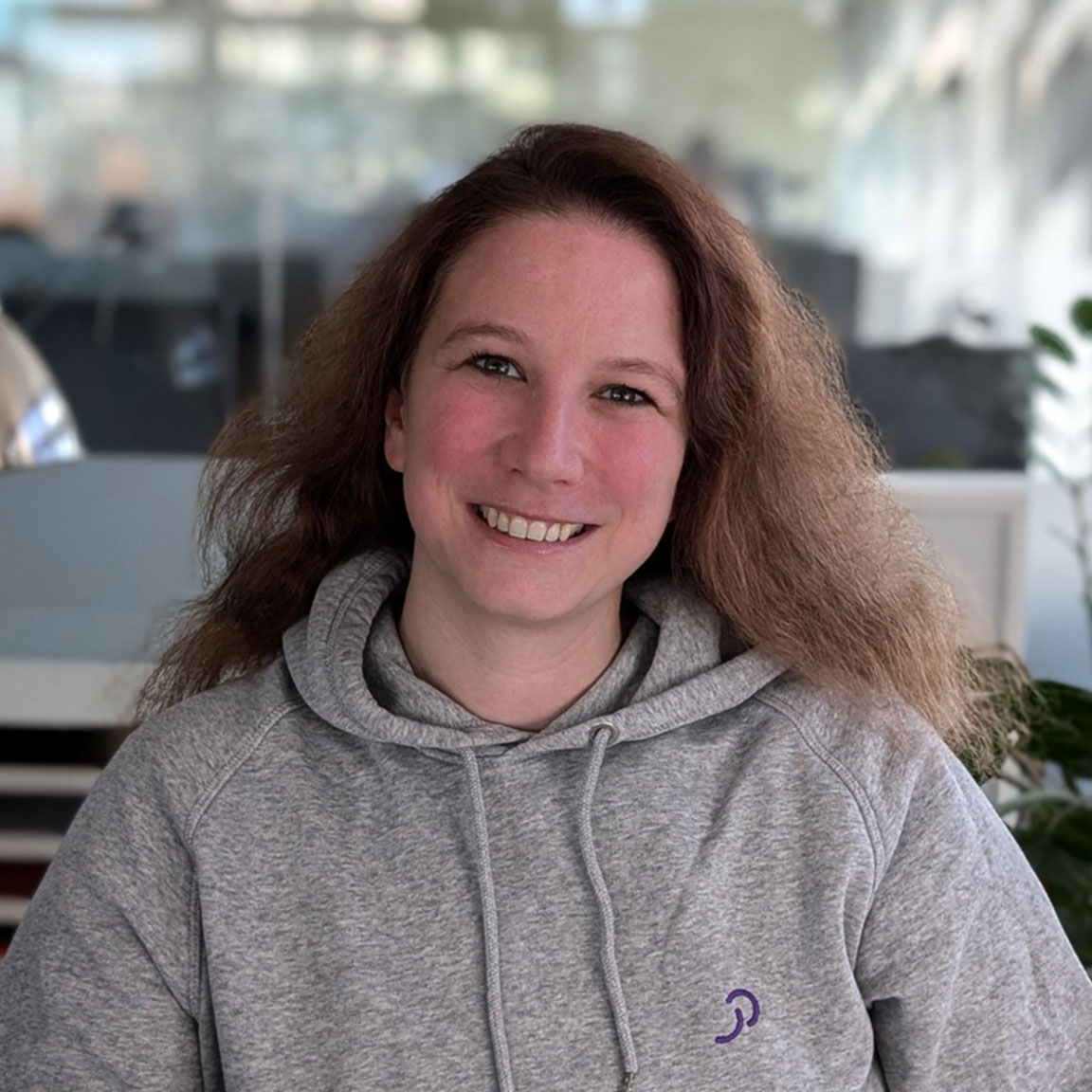INMA Media Innovation Week 2025: Our 5 Key Learnings for Those Who Couldn't Make It
The INMA Media Innovation Week in Dublin was a wake-up call. 321 media executives from 28 countries, over 50 speakers, and six media houses as part of the Study Tour. But the real message was clear: the industry has run out of time for excuses. Earl J. Wilkinson, Executive Director and CEO of INMA, warned right from the start: "Publishers have five years, not fifteen." Google Zero is already here, platform traffic is dying out, and only direct customer relationships count anymore. After three and five intensive days respectively (Stephan also attended the Study Tour), we've seen enough to know: those who don't act now will struggle significantly.
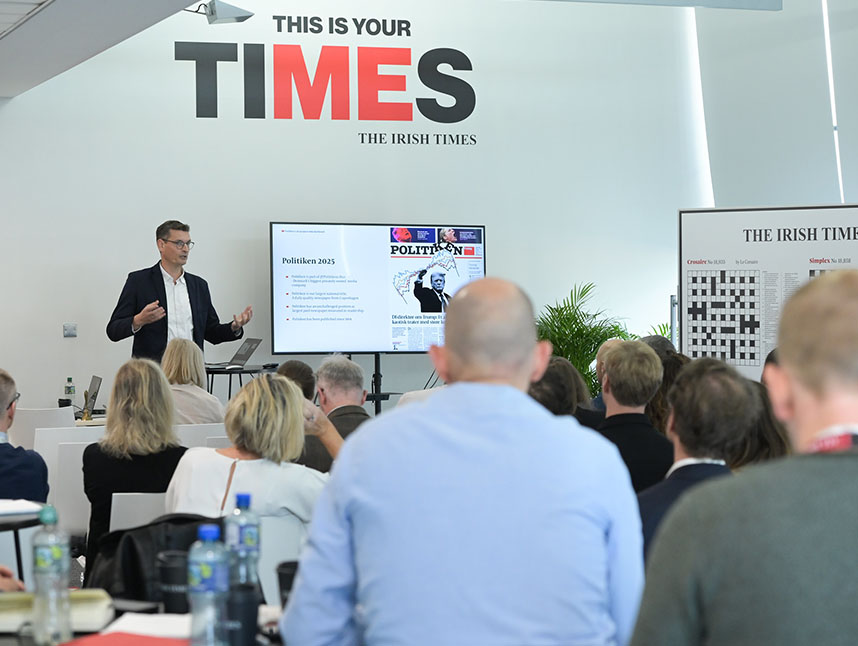
1. The New Pragmatism
Mediahuis Ireland has already achieved their digital subscription targets for 2025. The philosophy behind it, embodied by Sheena Peirse, Chief Customer Officer at Mediahuis Ireland, and her team: pragmatic progress over perfectionism. It doesn't have to be perfect, it has to work.
At The Irish Times Group, three radically simple principles impressed us: "Cultural Change through Structural Change", "Always Think Subscriber Centric" and "Raise Standard and Quality". Deirdre Veldon, Group Managing Director, Aisling McCabe, Group Strategy and Business Development Director, and David Labanyi, Head of Audience at The Irish Times, live these principles daily. This isn't about abstract strategy papers, but concrete changes in everyday operations. They understand: transformation isn't a project with an end date, it's a permanent mindset.
The look at TheJournal.ie was particularly revealing. As a digital-native publisher, they face the same challenges as traditional publishers. Susan Daly, Managing Editor at Journal Media, and her team admitted: the difference between "Digital First" and "Digital Only" is smaller than expected. Both worlds can learn from each other. The successful ones test quickly, fail cheaply, and scale what works. Perfection is the enemy of progress.
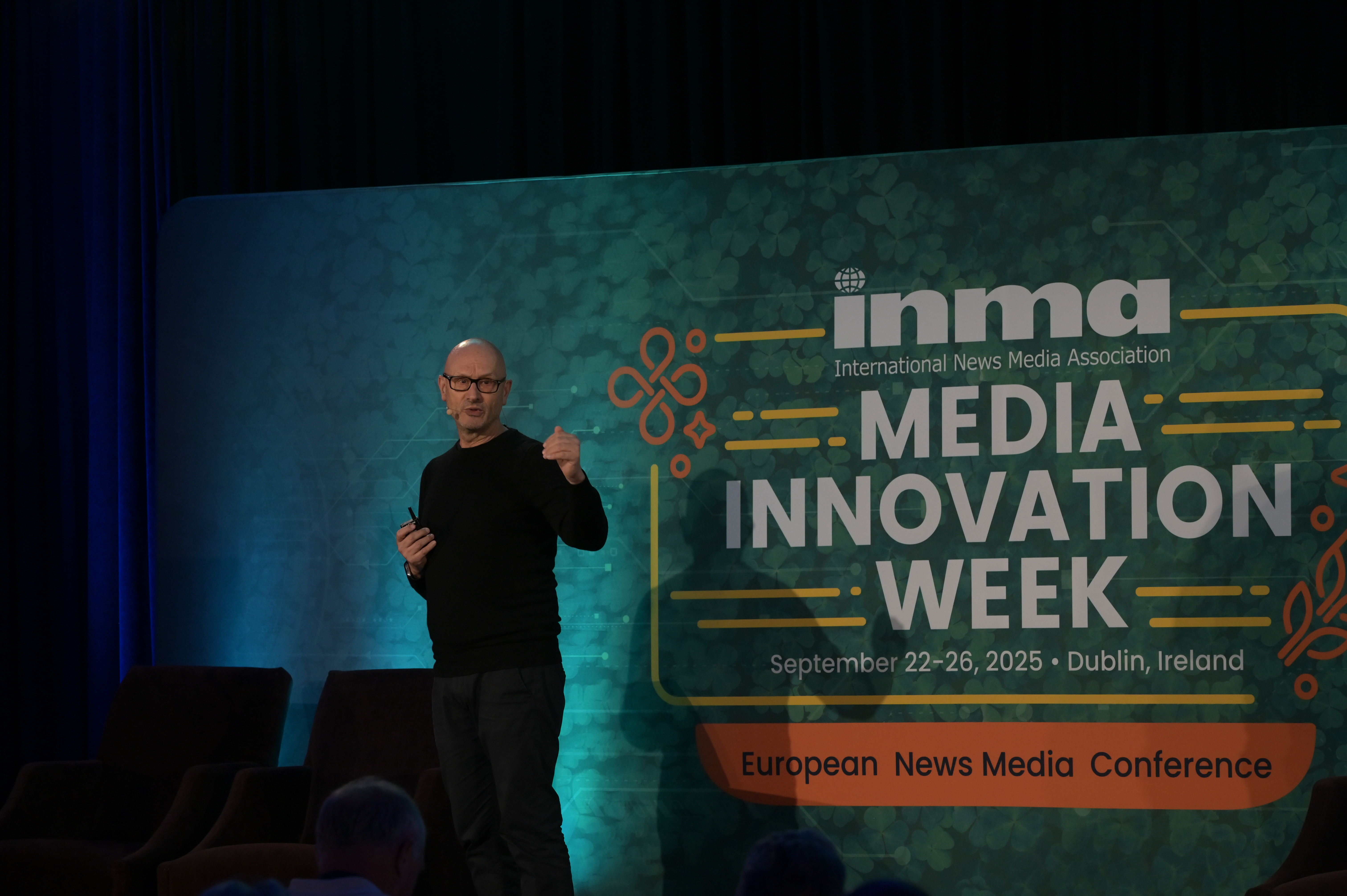
2. Agentic AI is Fundamentally Changing the Game
Robert Whitehead, Digital Platform Initiative Lead at INMA, demonstrated the future live on stage. In minutes, he built a functional app from an RSS feed. His vision sounds mad but is becoming reality: journalists get "25 super-helpers" that handle routine tasks, so humans can focus on what AI can never do: real journalism.
The conference was packed with practical examples. Mail Metro Media developed Mail IQ directly with their journalists. Chris Clemo, Director of Innovation at Daily Mail, compared AI to an intelligent graduate who only becomes truly useful through proper training. The tool focuses on administrative assistance, not creative replacement. At Funke, the Real Machine transforms articles into social media reels. What used to take two hours now takes ten minutes. Dr Paul Elvers, Head of AI Task-Force at Funke Media, has produced 500 reels and knows: AI content performs as well as handcrafted content.
But Valentin Heneka, Head of Editorial AI & Analytics at Badischer Verlag, warned against exaggeration: "LLMs don't just do journalism good." They write plausible texts with subtle errors that local readers spot immediately. His solution is pragmatic: use AI for efficiency, not credibility. His team now manages 500 news briefs weekly in 5 rather than 15 minutes. Conversations about Purple's AI Workflows confirmed: publishers want exactly this balance. Automation yes, but journalistic integrity remains sacrosanct.
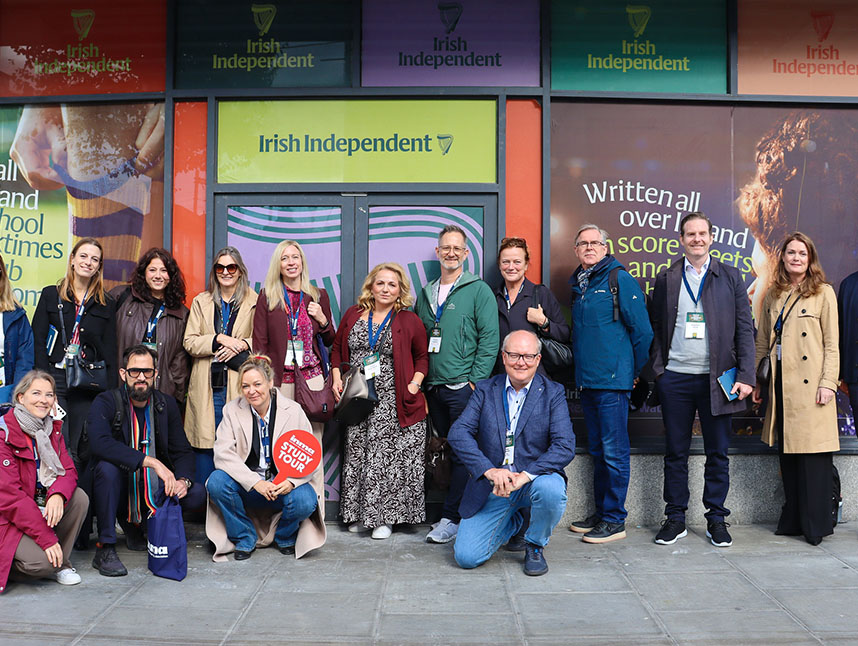
3. Audio and Podcasts Become a Strategic Lever
Audio is exploding right now. Mediahuis Ireland proves this with their Indoor Sports Podcast, for example. Mary Carroll, Group Head of Audio, demonstrated: whoever occupies a niche first can dominate it completely. Cormac Bourke, Editor-in-Chief at Mediahuis Ireland, presented Indo Sport as proof that sports coverage in audio format reaches entirely new target groups. It's no longer an add-on business, but its own channel with its own rules and its own audience.
Svenska Dagbladet goes even further. Madelaine Levy, Head of Storytelling there, doesn't simply transform articles into audio, but into "exciting audio experiences". This is more than text-to-speech. It's a new narrative form with stories and behind-the-scenes extras. Her strategy is brilliant: two episodes on Spotify, the third exclusively on the website. The result? Up to 1,000 new subscriptions per episode. Camilla Hillerö, Head of Data Analytics & AI at NTM, demonstrated AI-supported audio news that automatically adapts. Each listener gets their personalised programme. NWZ even ventured into investigative long-form with Nico Reimer, Coordinator Reporter Team at NWZ Mediengruppe, and his podcast about U-96. The result shows: audio works for every genre when done properly.
Lena Leibetseder, Head of Digital Publishing at Russmedia Digital, proved an important point with VOL.AT's Shorts format: it doesn't always have to be the hour-long deep dive. Snackable audio content reaches people in moments when text has no chance. On the bus, during sport, whilst doing housework. Publishers who ignore audio aren't just missing reach. They're missing an entire generation that prefers podcasts to linear radio and is willing to pay for good audio content.
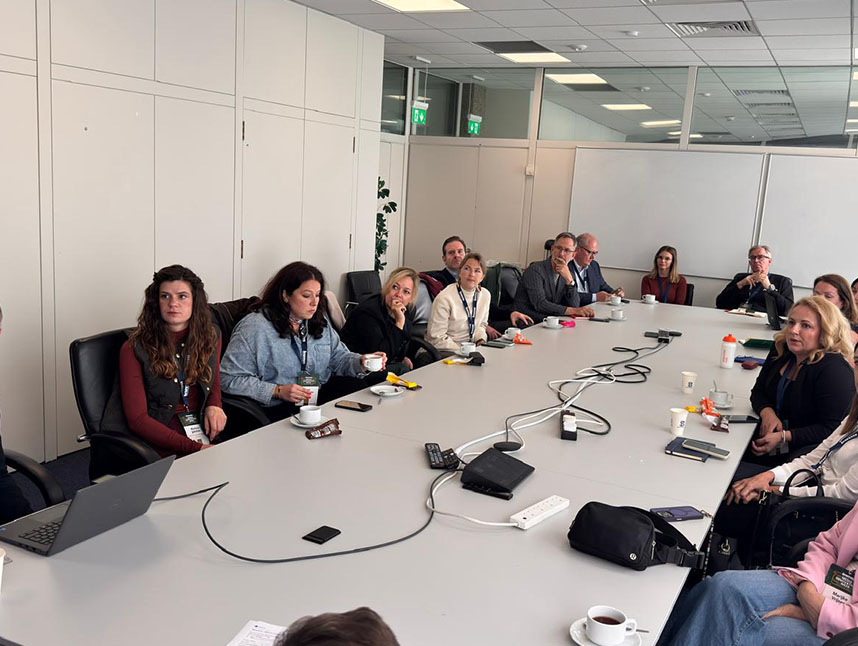
4. The Study Tour with Examples of Cultural Change
Stephan's two packed days with 21 publishing experts from 13 companies brought deep insights into the Irish media landscape. Business Post impressed with their consistent "Audience First" strategy. Sarah Murphy, CEO, and Daniel McConnell, Editor at Business Post, have developed an AI playbook that permeates the entire organisation. Their lesson: technology follows culture, never the reverse. Only when employees understand why they need to change will they actually do so.
RTÉ as a public service broadcaster also struggles with the same problems as private publishers. Kevin Bakhurst, Director-General, Adrian Lynch, Director Strategy & Audiences, and Deirdre McCarthy, Managing Director News & Current Affairs at RTÉ, are seeking ways to build engagement and cultivate returning audiences. The exchange between both worlds was illuminating. Public service organisations have different resources but similar challenges. Private media have more pressure but also more freedom to experiment.
Greg Piechota, Researcher-in-Residence at INMA, aptly summarised the Irish situation: Dublin may be a tech hub, but the media market remains deeply rooted in print. Digital subscriptions are only just emerging. Traditional newsroom structures still dominate. It's a market full of untapped potential. International players like Mediahuis and Bonnier News are driving digitalisation forward, but the path is long. Even in tech centres, digital transformation doesn't happen automatically. You have to actively drive it forward, every single day.
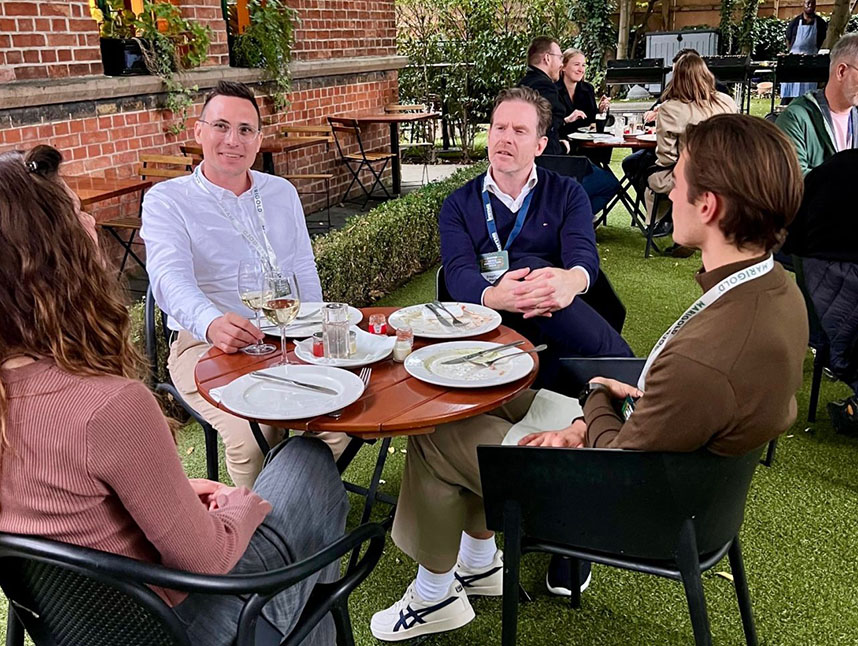
5. The Partner Ecosystem Becomes a Key Lever
Our joint dinner with Piano and Conversario showed where the journey is heading. 32 participants discussed the really tough questions: How do you get different systems to work together? How do you overcome silos between editorial, product and tech? The answers were clear: isolated tools are dead. Publishers need ecosystems that talk to each other.
The different approaches from Purple, Piano and Conversario complement each other organically. The discussions focused on practical integration, not theoretical possibilities. Executives want to know: how do I actually get my systems to work together?
Ringier Axel Springer shows where this is heading: 25,000 stories weekly flow through a central content pool across 120 brands. Ten percent of content is distributed this way and generates five percent of total page views. Bernd Volf, Managing Director at Ringier MediaTech, admitted: technology is the smallest problem. Governance, compliance and maintaining local relevance are the real challenges. But those who master them gain efficiency without loss of quality.
Conclusion: What We're Taking Away
Earl Wilkinson's warning ran through all three days: the "Zero Search World" is coming faster than expected. Search traffic is dying. Social media is becoming unpredictable. Big Tech payments are ending. Those without direct customer relationships will become invisible.
The conference confirmed what we experience daily at Purple: publishers need flexible, AI-supported platforms that orchestrate different channels whilst preserving journalistic quality. The intensive conversations showed enormous interest in pragmatic solutions. Nobody wants to wait for perfect technology anymore. Everyone wants to start now, even if not everything is perfect (yet).
Dublin was a call to action. The time for excuses is over. As Mediahuis Ireland has proven: success doesn't come from perfection, but from courage and speed. Move fast, break comfort zones, adapt or die.
If you'd like to learn more about Purple as an AI-powered digital-first CMS solution, book a demo today.






%201.svg)










